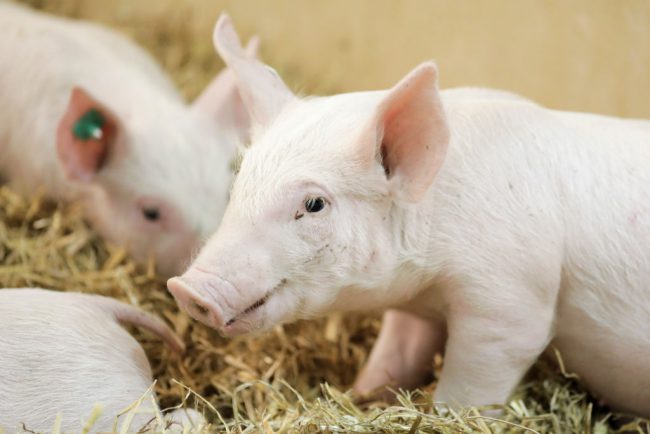In what could be a game-changer for modern medicine, scientists have created piglets whose genes were edited to exclude viruses that could cause disease in humans, potentially opening the door to pig-to-human organ transplants in the not-too-distant future.

The research, reported in the prestigious journal Science, could make it possible to transplant pig organs such as the heart, kidney, liver and lungs into human patients.
George Church, a Harvard University geneticist and one of the study’s lead researchers, told the New York Times that the first transplants could take place in as little as two years, although more widespread use is expected to be several years away.
READ MORE: Gene editing: how scientists used the tool to repair human embryos
Pigs have long been eyed as potential vessels for organ cultivation, as the size and structure of their organs makes them the most viable – theoretically – for transplantation to humans.
But while things like heart valves and pancreas cells have previously been transplanted from pigs to humans, full organ transplants haven’t been achieved due to fears surrounding porcine endogenous retroviruses (PERVs), which are distributed throughout the pig genome and can quickly infect human cells.
Until now.
READ MORE: Scientists alter human embryo DNA: does this open the door for designer babies?
- Buzz kill? Gen Z less interested in coffee than older Canadians, survey shows
- ‘She gets to be 10’: Ontario child’s heart donated to girl the same age
- Bird flu risk to humans an ‘enormous concern,’ WHO says. Here’s what to know
- Canada updating sperm donor screening criteria for men who have sex with men
Church and his colleagues started by mapping the presence of PERVs in the pig genome, identifying 25 sites in all. They then used CRISPR-Cas9 – a gene-editing technology that allows for highly precise alteration of DNA sequences – to deactivate the problematic sites.
The edited cells were then cloned and added to eggs, to enable them to develop into embryos. The embryos were implanted into sows, which eventually gave birth to PERV-free piglets. Some of the animals died before birth or soon after, but the team ended up with 15 living piglets, the oldest of which survived up to four months after birth.
WATCH: Possible relationship between organ transplants and overdose deaths

In 2015, Church and CRISPR-Cas9 expert Luhan Yang co-founded a company called eGenesis, with the hopes of eventually selling their genetically modified pig organs. In addition to making strides in eliminating retroviruses from pigs, the company is also looking into how to create pig organs that won’t produce an immune reaction in humans.
According to eGenesis, over 117,000 Americans are currently on organ transplant waiting lists, and 22 people die each day waiting for a transplant. The company claims that a single animal can save up to eight lives through the transplantation of different organs.




Comments